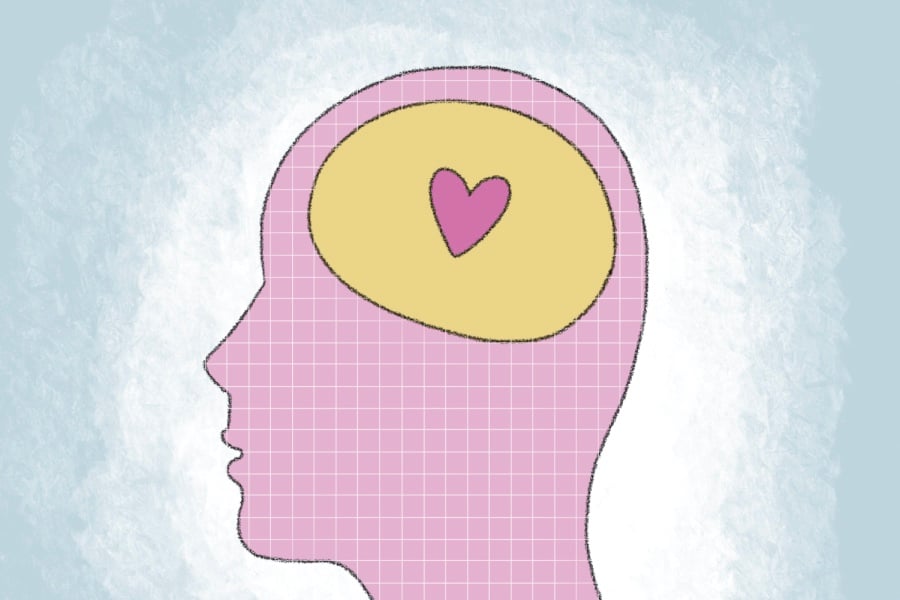Through peer support program, Project LETS at Northwestern focuses on support, lived experiences in mental health
Project LETS at Northwestern aims to provide students with lived experience a community of peers.
February 10, 2022
After noticing a gap between the number of licensed mental health providers and students who needed to access them, Communication junior Catherine Zhong co-founded a Northwestern chapter of Project LETS last winter.
Project LETS is a national organization dedicated to creating a community of peers for those with lived mental health challenges. NU’s chapter includes subcommittees focused on different aspects of improving mental health on campus and in the broader community.
“We build peer support collectives, lead political education, develop new knowledge and language around mental distress, organize and advocate for the liberation of our community members globally, and create innovative peer-led alternatives to our current mental health system,” Project LETS’ website reads.
In addition to educating the broader community on mental health, Project LETS is the umbrella organization for movements like Reform CAPS and other safe spaces. Zhong said it’s this combination of advocacy, community building and lived experience that makes Project LETS unique.
“I think that when people talk about mental health, a lot of the times it’s around just talking about stigma … but that educational piece of it is only one part of our organization,” Zhong said. “What makes us different is our focus on lived experience of folks with neurodivergence, trauma, disability or mental illness.”
One way to achieve a sense of personal community is through the Peer Mental Health Advocate model, a major subcommittee within the project. Project LETS defines its PMHA program as a one-on-one “peer support service” between students with lived experience to create “long-term peer support and advocacy partnerships.” SESP sophomore Max Byrne, the PMHA coordinator of NU’s chapter, said this community support offers a better alternative to carceral systems.
Byrne added the focus on lived experience, the reality of those who deal with mental illnesses, trauma, disabilities and neurodivergence themselves, means those involved in Project LETS can understand each other on a more personal level. Students can also draw on personal resources and tools they used to help other students, Byrne said.
“We focus on abolition and other sort of structural forms of oppression that contribute to mental illness … with a focus on community care and emphasizing lived experiences,” Byrne said. “That may include medication, talk therapy, more traditional medical models of treating mental illness or it could include more community care, personal practice, spirituality or a combination of these two.”
Students interested in becoming PMHAs participate in a four-week national organization training that focuses on teaching trainees how to handle crisis situations and discussing how personal identity plays a role in forming peer relationships, Byrne said.
Project LETS hosts general meetings on Wednesdays from 7 p.m. to 8 p.m. Zhong said these meetings include LETS talks, where members choose a topic to discuss, learn about and think critically about. Byrne added there are separate meetings on Sundays to provide additional support for students involved in PMHA training.
“In the fall, the meetings (included) discussing the topics that we talked about each week, discussing… any difficult emotions that came up, because (trainings) touch on things that we’ve experienced that have been really painful, which helps with empathy, but can also be really difficult,” Byrne said. “So part of those meetings are also holding space for people to talk about that or share or decompress, and support each other as we go through the training.”
Zhong said NU’s chapter has a matching program where peers can apply to be matched with a PMHA for long term support. Byrne said the program is currently in need of more PMHAs, but the program is still in its pilot stage and they try their best to match peers who need support with a fitting PMHA.
Zhong said one of their biggest goals is to improve and expand the PMHA system. The chapter is also planning more programming for winter and spring and plans to host events with groups like the Women’s Center and the Society of Hispanic Professional Engineers.
“One (of our hopes) is our expansion of the PMHA program and that looks like accepting peers, that looks like more PMHAs being trained,” Zhong said. “That looks like building this rich community of students who have lived experience, who can share that and feel comfortable sharing that with the rest of the community and build that community of support.”
Email: joannahou2025@u.northwestern.edu
Twitter: @joannah_11
Related Stories:
— WE ARE SAATH Northwestern focuses on mental health in the South Asian community



